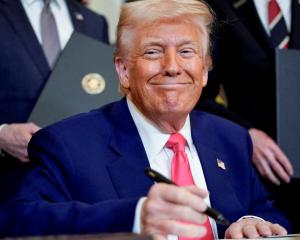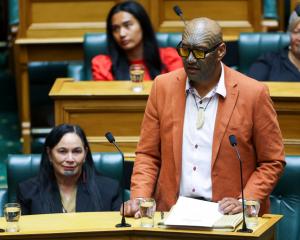The Maori Council and some tribal and hapu interests maintain Maori "ownership" of water, including the Waikato River. If that is so, then how are these to be satisfied?
Will Maori interests be appeased, as in the past, with a specific share of the pie?
Will they be "bought off" by being given a share of the shares?
As usual, the long-suffering taxpayer would be utilised to engineer a political and apparently pragmatic solution. The Government - and that is the people of New Zealand - would therefore receive less.
A major difficulty is precedent.
Conceded would be the fact of Maori water ownership, that is to those who trace part of their ancestry to tribal groups in particular places in the first half of the 19th century, particularly 1840. That, surely, applies to all water to a greater or lesser degree, while perhaps dependant in part on the relationship with the water in the intervening years. These New Zealanders claim privileges because of the family they happened to be born into, and these could well apply across the country. Do Ngai Tahu members, for example, "own" or have some form of "guardianship" over the Water of the Leith?
Might Ngai Tahu in the future take fees from Contact Energy, Trust Power (which would be passed on in higher electricity charges) and farmer irrigators for the use of water?
Or will Maori involvement in Resource Management Act resource decisions increase?
This, too, may add another cost impost which, in effect, waters down the rights of the community's representatives - via regional councils - to make decisions.
Treaty of Waitangi "principles" and "partnership" and the rights of certain New Zealanders have gained increasing legal status since the 1987 Treaty ruling of Justice Cooke and decisions of successive governments.
Quite clearly, it is in the interests of some people to push separatism and distinct rights - and why wouldn't they?
Likewise, separate Maori seats and Maori parties skew the political process in that direction. This has gained such momentum that many, including much of the political establishment, support its basic premises.
As for those whose interests it serves, many have - not surprisingly - come to believe with an almost religious fervour, and expectations have escalated. The Treaty of Waitangi, a political document like all treaties at all times, has become a sacred text.
It is on these understandings that the Waitangi Tribunal sits.
While it can, and has, exposed specific exploitation and injustices from New Zealand's post-colonial history, it and its members come to their deliberations from a particular viewpoint of life and history. Maori negotiators and politicians continuously are able to use their political astuteness to exploit their bargaining position to advance their interests. John Key's Government, for example, was persuaded to sign - unlike Labour - the Declaration of Indigenous Rights. Mr Key told everyone it would make little practical difference. Now, in the context of the Mighty River and water claims, it is being quoted back at him.
Only a generation or two ago, it would widely have been thought ridiculous that any New Zealander or group of New Zealanders "owned" our basic resources. In certain circles these days, though, it is self-evident that descendants of the earlier inhabitants "own" not just a specific share of deep-sea fishing rights but also water, the latest in the series of claims.
There are claims to minerals, the airwaves, and so on. Where will it end?
In New Zealand's current climate and given that, in the end, interests battle it out on a political front, some sort of messy "compromise" probably will be reached. The political and legal situation is too complex for much else. That, however, will not resolve the underlying issues.













